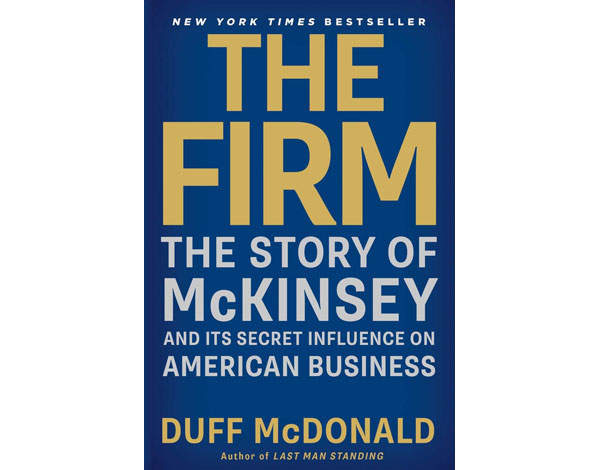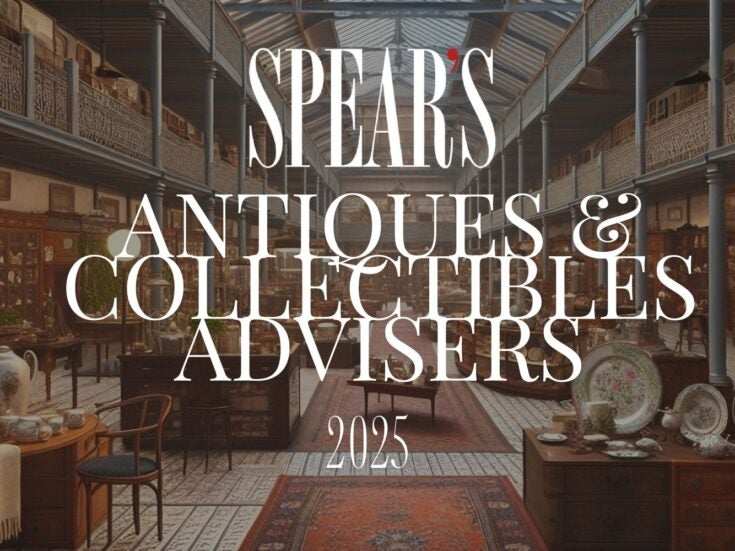

I was brought up on McKinsey worship. My colleagues in our small but beautifully formed consultancy saw the management consultants McKinsey as the service business role model. And by the 1990s, service business types all over the place wanted to be the McKinseys of their sector.
This aspiration, like the idea of working at an investment bank, included an enormous but unacknowledged dose of snobbery. You’d be doing business, but not quite in it, in any dumb old corporate giant way. (Gently raised twentysomethings felt better saying they worked at McKinsey’s or JP Morgan than at a comparable level in Heinz or the National Something Corporation. It had more drinks party power.)
You knew, because McKinsey’s PR told you, that they only employed the brightest and the best from the smartest universities. McKinsey absolutely loved intellectuals; they displayed it by hiring people with apparently prodigious brains and forever publishing their Big Thoughts on business — at one point the Harvard Business Review and the McKinsey Quarterly seemed like practically the same publication.
McKinsey people had more than a mission. They had a dress code. Marvin Bower, managing director from 1950-67 and generally credited as the real maker of the modern McKinsey, apparently hired significantly taller men and then commanded them to dress in that old east-coast establishment Brooks Brothers way (with long socks: McKinsey men shouldn’t show bare leg flesh). It all sounded like a tremendously smart, driven and worldly monastery. And it had a famous self-denying ordinance — namely that McKinsey consultants’ priority should always be their clients’ interest, not the McKinsey bottom line. If you gave good advice, then you’d grow and be rewarded.
This generalised reputation for cleverness, social smartness and probity grew even more attractive over the years as McKinsey itself became a huge global company and as the focus of business in the Western world moved from making things to providing services. Professional services: McKinsey managed to make consultancy look like a profession.
Its Ivy League associations, its Eastern Socially Attractive catchment, its lovely offices (the first McKinsey offices I saw were on Jermyn Street), its legendary training and law-firm-sounding partnership structure blurred the boundaries between clever chancers and capital-P Professions with ancient societies and absolute codes of conduct. Marvin Bower saw that if McKinsey developed a set of rituals and livery to match, it would be seen in the same way. Particularly in America.
I don’t think Duff McDonald’s The Firm is intended as a hatchet job, despite its title sounding like a play on John Grisham’s novel about the smart law firm that’s a front for organised crime. ‘The Firm’ is just solipsistic McKinsey-speak for itself.
I was expecting a familiar formula, the ‘unauthorised’ portrait that actually compounds the mystique. A few falls from grace along the way, but ultimate redemption and renewal in the classic American way. But The Firm, in its un-showy way, takes McKinsey apart.
There’s the structural change context to start with, the great business revolution of the 21st century that wrong-footed McKinsey and many of its peers. It didn’t predict the move to an internet world, and the giants of that new world tend not to use McKinsey like the corporate giants of the old America.
And the brightest and the best no longer see consultancy or investment banking as the twin cities on the hill of smart employment. They want to be in clever tech start-ups. Now McKinsey has thousands of employees in 90 countries it can’t be so elitist anyway.
But it goes deeper than that. McDonald unpacks the creation of the mythology — no advertising, of course, but the hidden hand of subtle PR. And he shows, instance by instance, how malleable those McKinsey principles have seemed in practice. One of my own favourite lines — it became a positive motto in my firm — came from a client’s delicious Freudian slip. He’d said: ‘I’d like to commission a finding.’ He’d meant to say ‘study’.
McKinsey, McDonald suggests, was forever having two particular findings commissioned: the remorselessly ‘objective’ finding that you needed to downsize your workforce by some thousands (and then outsource the work to somewhere with much lower labour costs), and the analysis that showed, quite incontrovertibly, that the CEO should have his base salary tripled and his LTIP increased tenfold.
Then there are the deepest and most recent embarrassments. There was McKinsey’s hyper-involvement with the unsustainable business model at Enron, the US’s largest corporate failure. Enron’s CEO, Jeffrey Skilling, had been a long-standing McKinsey partner and McKinsey had worked for Enron for nearly twenty years. Enron literally took down Arthur Andersen (leaving Accenture standing), but McKinsey suffered surprisingly little damage. But it certainly doesn’t read well.
Then there’s the Gupta affair. Rajat Gupta, McKinsey’s first non-US managing director, who presided over the firm’s great growth spurt of the 1990s, went to prison for two years in June this year for insider trading offences, committed when he’d left McKinsey formally but was still working out of its New York offices. His protégé, Anil Kumar, had gone down earlier for passing on confidential information on clients to a hedge-fund friend while still working at McKinsey. For a company with such an assiduously created reputation, it looked especially bad.
But, worst of all, McDonald asks whether McKinsey’s legendary fees — major clients can pay tens of millions a year — have bought them much in the way of solutions or innovation. Did McKinsey’s reorganisation of General Motors actually hasten its eventual collapse? Did its prodigiously profitable Wall Street work sound any early warnings about the mortgage market and dodgy derivatives?
After McDonald’s careful slow-burn marshalling of the evidence, you’re left with the impression of McKinsey as a brilliantly constructed business-to-business luxury brand, valued mainly for its style and its price. The Firm takes an oddly modest approach to demolishing one of the most powerful business mythologies of the American Century.






